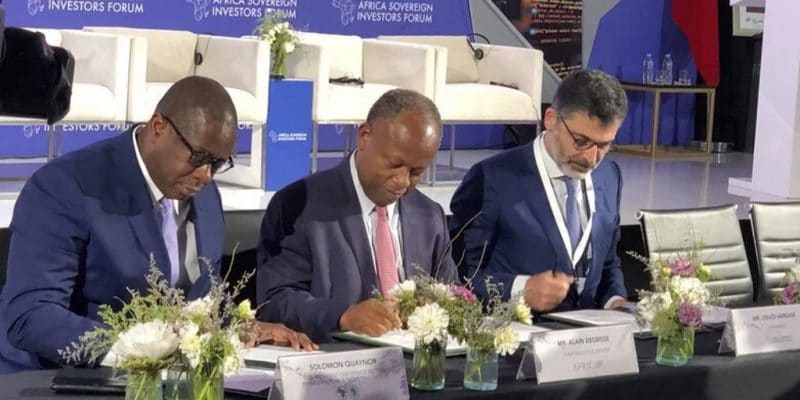Several African banks and investment firms are joining forces to finance climate-resilient infrastructure in Africa. The alliance consists of the African Development Bank (AfDB), Africa50 and the new African Sovereign Investors Forum (ASIF).
In the face of climate change, African investors are joining forces to finance climate-resilient infrastructure. Meeting recently in Rabat, Morocco, the heads of banks and investment companies signed a letter of intent to this effect. The coalition is made up of the African Development Bank (AfDB), the new African Sovereign Investors Forum (ASIF) and Africa50, an infrastructure investment platform established by the AfDB and African states.
“This is an important step in building strong collaboration among stakeholders to address the substantial infrastructure financing needs in Africa. We need to ensure that key regional infrastructure projects are attractive and bankable to global private investors,” says Alain Ebobissé, Africa50’s Chief Executive Officer.
Mobilising several investment companies
Asif will play a key role in financing resilient infrastructure at the local level. The recently launched platform brings together Rwanda’s Agaciro Development Fund, Djibouti’s Sovereign Wealth Fund (SDF), Gabon’s Fonds Gabonais d’Investissements Stratégiques (FGIS), Senegal’s Fonds Sovereign d’Investissements Stratégiques (Fonsis), Angola’s Fundo Soberano (FSDEA), Ghana’s Ghana Infrastructure Investment Fund (GIIF), Morocco’s Ithmar Capital, Nigeria’s Nigeria Sovereign Investment Authority (NSIA), and Egypt’s Sovereign Wealth Fund (TSFE).
Read also- AFRICA: A new alliance will mobilise $500m for green infrastructure
According to Solomon Quaynor, AfDB Vice President for Private Sector, Infrastructure and Industrialisation, the recently signed partnership between ASIF, AfDB and Africa50 will strengthen collaborations in project development and co-financing, mobilising capital to finance resilient, green and sustainable infrastructure, and identifying investment opportunities to promote infrastructure and industrialisation in Africa.
“This is a key element of the AfDB’s strategy to leverage the approximately $2 trillion in assets under management by African institutional investors, including sovereign wealth funds, pension funds and insurance companies, for infrastructure and industrialisation on the continent,” explains Solomon Quaynor. The new coalition comes at a time when the continent needs resilient infrastructure more than ever to cope with natural disasters exacerbated by climate change, such as cyclones in East Africa, drought in the North and Horn of Africa, and floods in the West.
Jean Marie Takouleu






